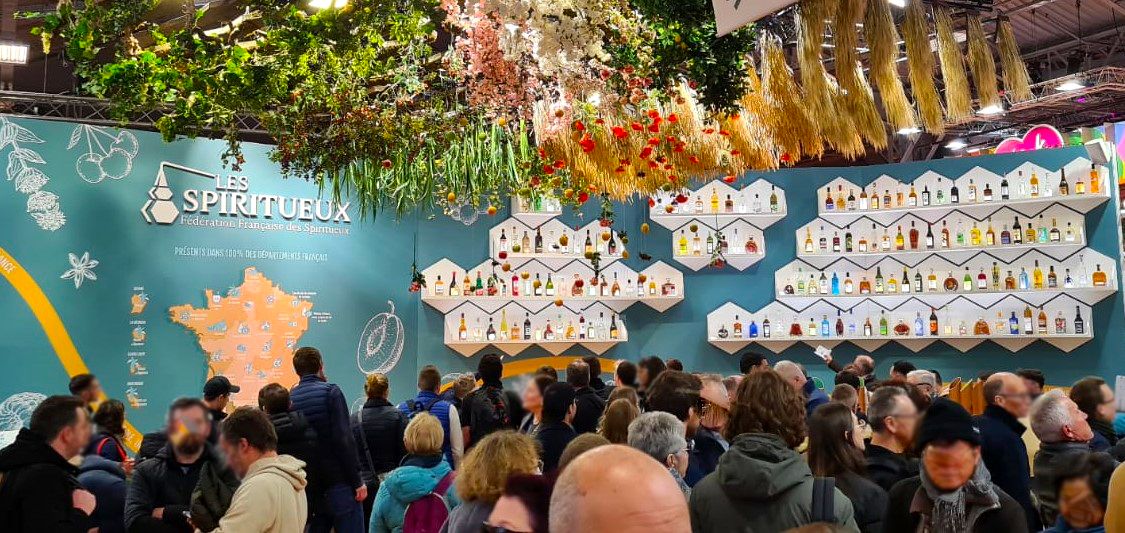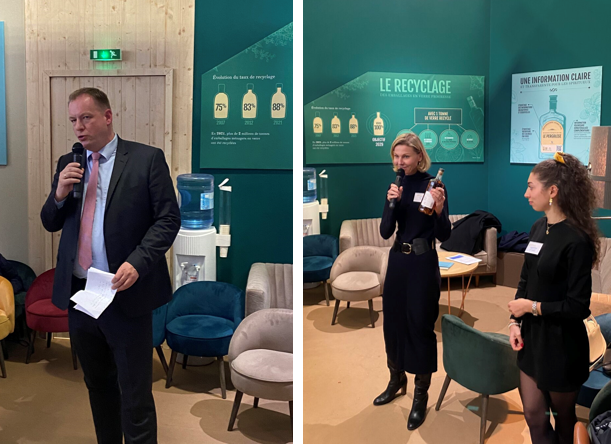
For the 2nd consecutive year, the spirits sector was present at the International Agriculture Fair in Paris. Thousands of visitors had the chance to learn more about French spirits and the challenges faced by producers to preserve and develop the precious agricultural heritage at the origin of their products.
In the great family of spirits, the story always begins with a fruit, a plant or a grain, the best of which is extracted by the expert hands of the producers. Each year, nearly 3 million tonnes of agricultural raw materials are distilled, macerated or infused.
In France, they are used in the composition of a wide variety of products (absinthe, aniseed, Armagnac, Calvados, Cognac, fruit brandy, juniper, gentian, fruit liqueur and cream, rum, vodka, gin, whisky...). French spirits are exported to more than 150 countries worldwide, making France a shining example on the international scene.
Richness in a bottle: what could be more essential than preserving nature when using the best it has to offer?
This is obvious and makes perfect sense at a time when the industry is rethinking its production methods in order to adapt to climate change and shortages of energy and raw materials. Depending on its products, its size, or its location, each company makes concrete and sustainable choices for tomorrow.
Spirits producers pay particular attention to the areas used for production, their terroirs. They are keen to promote local production by contracting with local farmers and developing varietal selection programmes to adapt production to climate change.
The distilleries are also committed to preserving their ecosystem, fauna, flora and natural resources by environmentally friendly agricultural and industrial practices.
At many sites, cooling water that is reheated after its use cycle is recovered and returned to the manufacturing process. The by-products of production almost always find a new use: they can be used as animal feed, spread on fields, or converted into biogas to generate green energy.
Finally, through eco-design, many producers are developing new practices with more economical in terms of glass or even made from 100% recycled glass.

Ulrich Adam, spiritsEUROPE - Camille de Potter & Anouk Hertzberg, Pernod Ricard presenting spirits sector’s initiatives on e-labelling.
“We are committed to providing improved consumer information, adjusted to local languages, with local customized content and the level of detail consumers deserve to have. This can only be done by harnessing the power of digital as a true consumer-centric business”.